GRPC Developer
GRPC Developer Staff Augmentation from South America with Us

We are a Nearshore development company that provides the best and most experienced Remote GRPC Developer Staff Augmentation to businesses in the US, UK, and Canada. At Kaynes, we make hiring a GRPC developer an easy, smooth, and fast process. We find the Remote GRPC Developer for your role, whose experience best matches your specific requirements and is responsible and hardworking.
Thank you for reading this post, don't forget to subscribe!Not only do we have a vast pool of South American GRPC talent to draw from, but we also use an artificial intelligence matching algorithm and our seasoned human experience in GRPC recruitment and management to help you find the best developer for your project. Our team finds the best match for your business based on a combination of data analysis, personal interviews, and intuition.
Our goal is to help you augment your team with a GRPC Developer who will contribute quality GRPC code from the start. We have refined our hiring process over several years, which is trusted by several fast-growing startups. Kaynes can help you find your dream GRPC software developer. Get started by sending us a message today.
Cost-Effective Solutions:
Our Remote South American GRPC Developers offer competitive rates, providing exceptional value for US companies.
Transparent Pricing:
Kaynes handles personnel benefits, local employment taxes, and other employment-related expenses, ensuring no surprise costs.
Expert Talent:
Our GRPC Developers are put through a rigorous vetting process, ensuring you hire only top-tier professionals.
Time Zone Alignment:
Located in Brazil, our developers work US hours, facilitating seamless communication with your existing team.
What Our Customers Say
Testimonials



In Demand
Why Do Companies Want GRPC Developer Staff Augmentation?
Businesses are always on the lookout for ways to improve their software development processes and stay ahead of the competition. GRPC Developer Staff Augmentation offers a flexible and efficient route to scale your technology teams without the lengthy process of traditional hiring. This model allows businesses to tap into specialized skills and expertise that might not be readily available in-house.
Staff Augmentation helps companies to quickly adapt to the ever-changing demands of software projects. Whether it’s for short-term projects or long-term engagements, augmenting your staff with skilled GRPC developers can significantly reduce the time-to-market for new features and improvements. Moreover, this approach allows companies to focus on their core business activities while their augmented team handles the software development needs.
Leveraging remote talent, particularly from talent-rich regions like South America, means that companies can access a broader pool of experienced professionals. This geographical advantage, coupled with cost-effective pricing, makes GRPC Developer Staff Augmentation an attractive option for businesses looking to innovate and grow without compromising on quality.
Advantages
Advantages of GRPC
- High Performance
- Low Latency
- Multi-language Support
- Built-in Load Balancing
- Strong Typing Through Protocol Buffers
- Efficient Data Serialization
- Full Duplex Streaming
- Robust and Secure Communication
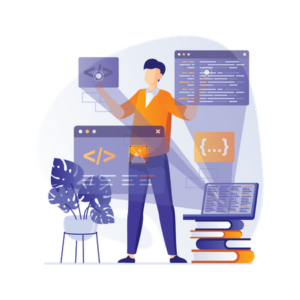
The Role of GRPC Developers
A GRPC developer specializes in building and optimizing remote procedure call (RPC) services using the GRPC framework. Their main role involves designing, implementing, and maintaining GRPC-based APIs that enable efficient communication between microservices. These developers are proficient in GRPC concepts, including protocol buffers, and are skilled in various programming languages supported by GRPC such as C++, Java, Python, and Go.
GRPC developers ensure that the services being developed are high-performance, scalable, and secure. They are also responsible for integrating these services into existing systems and ensuring seamless interactions between different components. Furthermore, they must keep up with the latest advancements in GRPC and related technologies to continually improve the performance and reliability of the services. In essence, GRPC developers play a crucial role in the development and maintenance of modern, distributed systems.
Why Hire Remote?
Why GRPC Developer Staff Augmentation?
Staff augmentation offers an efficient and flexible approach to scaling your development team with specialized GRPC developers. One of the primary reasons companies prefer staff augmentation is the ability to quickly fill skill gaps without the lengthy process of traditional hiring. By leveraging a pool of pre-vetted, experienced GRPC developers, businesses can rapidly onboard talent to meet project deadlines and address critical needs. This allows for greater adaptability in managing fluctuating project demands.
Additionally, staff augmentation provides cost-effective solutions by allowing companies to avoid the overhead expenses associated with full-time employees. This includes benefits, local taxes, and other employment-related costs which are managed by the outsourcing partner. Companies can thus allocate their budget more efficiently, focusing resources on other strategic initiatives while still accessing top-tier GRPC talent.
Moreover, GRPC Developer Staff Augmentation offers the advantage of time zone alignment, especially when sourcing talent from regions like South America. Developers who work US hours can collaborate seamlessly with existing teams, ensuring effective communication and project continuity. This model not only enhances productivity but also allows for real-time problem-solving and quicker iterations, ultimately contributing to the successful delivery of software projects.

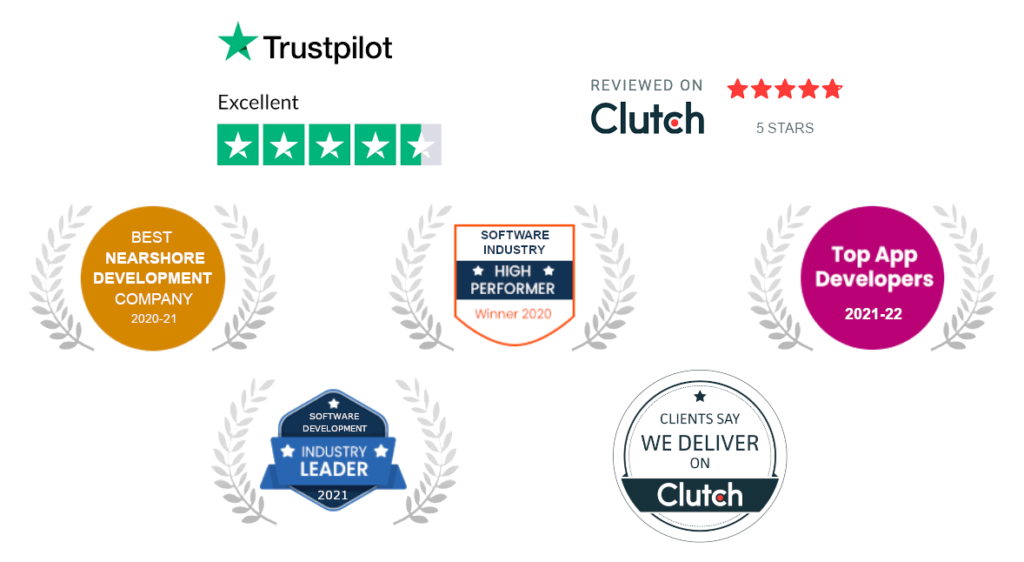
Trusted Partner for You
A Reliable Partner For You
In order to develop apps and websites, you need a partner with experience and reliability. We strive to provide a professional and premium service to all of our customers. Our development team can help you get off to a great start!
Why Hire With US
Benefits of GRPC Developer Staff Augmentation with us
Partnering with Kaynes for GRPC Developer Staff Augmentation brings numerous advantages to your business. First and foremost, we offer access to a vast pool of talented and experienced developers in South America, ensuring you get the best fit for your specific needs. Our rigorous vetting process means you can trust the quality and professionalism of our developers.
Another significant benefit is cost savings. Kaynes handles all employment-related expenses, including benefits and local employment taxes, so you can avoid surprise costs and focus on your core business activities. Additionally, our developers work US hours, facilitating smooth communication and collaboration with your team.
Finally, our streamlined hiring process ensures you can onboard the right talent quickly and efficiently, reducing downtime and accelerating your project timelines. With Kaynes, augmenting your team with top-tier GRPC developers is a seamless and hassle-free experience.
How much does it cost for GRPC Developer Staff Augmentation?
The cost of GRPC Developer Staff Augmentation can vary based on several factors, including expertise, experience, location, and market conditions.
Experienced GRPC Developers often command higher fees but bring the benefit of delivering higher-quality results, working more efficiently, and offering specialized expertise. These qualities make them a valuable asset to any project.
On the other hand, junior developers might price their services lower as they gain experience, offering a more budget-friendly option while still providing solid contributions to your project.
Our hourly rates for our South American GRPC Developers staff augmentation service are:
Junior
Prices From- Works to U.S time zones
- No Recruitment Fees
- Vetted Skills & Experience
- Fulltime Working for you
- No Unreliable Freelancers
Intermediate
Prices From- Works to U.S time zones
- No Recruitment Fees
- Vetted Skills & Experience
- Fulltime Working for you
- No Unreliable Freelancers
Senior
Prices From- Works to U.S time zones
- No Recruitment Fees
- Vetted Skills & Experience
- Fulltime Working for you
- No Unreliable Freelancers
With us, you can hire a Remote GRPC Developer. Developer prices may vary depending on exact skill and experience requirements and availability.
You’ll have to decide which one works best for your project based on its specifics.
GRPC Code
What does GRPC code look like?
Here’s a practical example of GRPC code to give you a better understanding of the implementation:
Defining the Service in a .proto File
First, you define the service and RPC calls in a .proto file. This file uses Protocol Buffers to define the structure of your messages.
syntax = "proto3";
package example;
service Greeter {
// Simple RPC
rpc SayHello (HelloRequest) returns (HelloReply) {}
}
message HelloRequest {
string name = 1;
}
message HelloReply {
string message = 1;
}
Generating Code from the .proto File
Next, you use the Protocol Buffers compiler to generate the client and server code from the .proto file. Here’s an example of how to do this in Python:
protoc --python_out=. --grpc_python_out=. example.proto
Implementing the Server
Now, you can implement the server in Python:
import grpc
from concurrent import futures
import example_pb2
import example_pb2_grpc
class GreeterServicer(example_pb2_grpc.GreeterServicer):
def SayHello(self, request, context):
return example_pb2.HelloReply(message='Hello, {}'.format(request.name))
def serve():
server = grpc.server(futures.ThreadPoolExecutor(max_workers=10))
example_pb2_grpc.add_GreeterServicer_to_server(GreeterServicer(), server)
server.add_insecure_port('[::]:50051')
server.start()
server.wait_for_termination()
if __name__ == '__main__':
serve()
Implementing the Client
Finally, you can implement the client that interacts with the server:
import grpc
import example_pb2
import example_pb2_grpc
def run():
with grpc.insecure_channel('localhost:50051') as channel:
stub = example_pb2_grpc.GreeterStub(channel)
response = stub.SayHello(example_pb2.HelloRequest(name='World'))
print("Greeter client received: " + response.message)
if __name__ == '__main__':
run()
These snippets provide a basic example of how you can define a GRPC service, implement a server, and create a client to interact with it. This example showcases the simplicity and efficiency that GRPC can bring to your application's communication layer.
Your Needs
Identifying Your GRPC Development Needs
Core GRPC Expertise and Specializations
When identifying your GRPC development needs, it’s essential to focus on the core expertise and specializations required for your project. GRPC developers should have a deep understanding of Protocol Buffers, the interface definition language (IDL) used by GRPC, along with experience in designing, implementing, and maintaining GRPC-based services. Familiarity with various programming languages that GRPC supports, such as C++, Java, Python, and Go, is also crucial. Additionally, expertise in asynchronous programming, network protocols, and performance optimization can significantly enhance the efficiency and reliability of your GRPC services.
Backend Development and Database Frameworks
In the realm of backend development, GRPC is often paired with robust database frameworks to create high-performance, scalable systems. Popular backend development frameworks include Node.js, Django, and Spring Boot, which provide essential tools and libraries for building server-side applications. GRPC can seamlessly integrate with these frameworks, allowing developers to create efficient communication protocols between services.
For database frameworks, GRPC is frequently used alongside SQL-based databases like PostgreSQL and MySQL, as well as NoSQL databases like MongoDB and Cassandra. These frameworks enable developers to efficiently manage and store data, ensuring quick and reliable data retrieval and manipulation.
Companies need these backend development and database frameworks to build scalable, responsive applications that can handle high volumes of data and user interactions. The combination of GRPC with these frameworks allows for low-latency communication between microservices, enhancing the overall performance and user experience of the application.
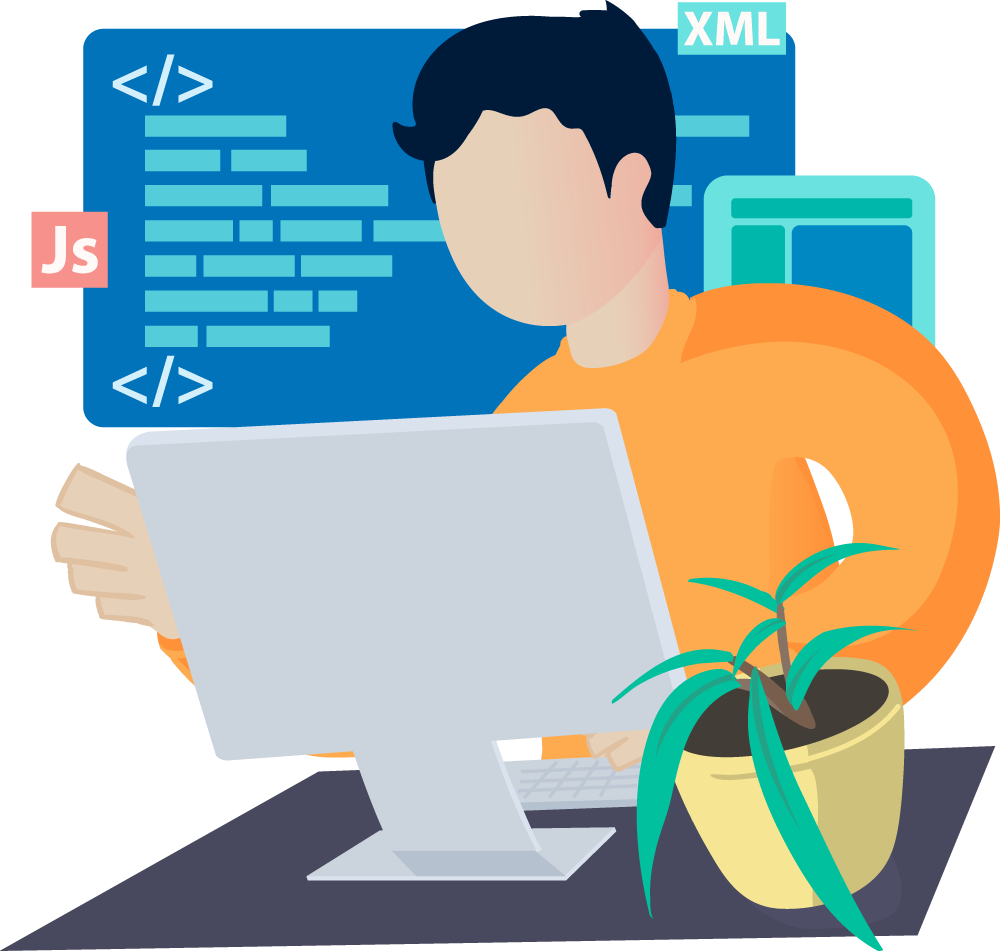
Other Popular uses for GRPC
Beyond backend development, GRPC is also widely used for real-time communication, microservices architecture, and IoT applications. In real-time communication scenarios, GRPC’s low-latency RPC calls facilitate instant data exchange, making it ideal for chat applications, live streaming, and online gaming.
In microservices architecture, GRPC provides a robust framework for inter-service communication, ensuring that different microservices can efficiently interact and exchange data. This is essential for maintaining the integrity and performance of distributed systems.
In the realm of IoT, GRPC enables efficient communication between IoT devices and central servers, ensuring that data is quickly and reliably transmitted. Companies need these capabilities to build responsive, scalable systems that can handle the complex demands of real-time data processing and inter-service communication.
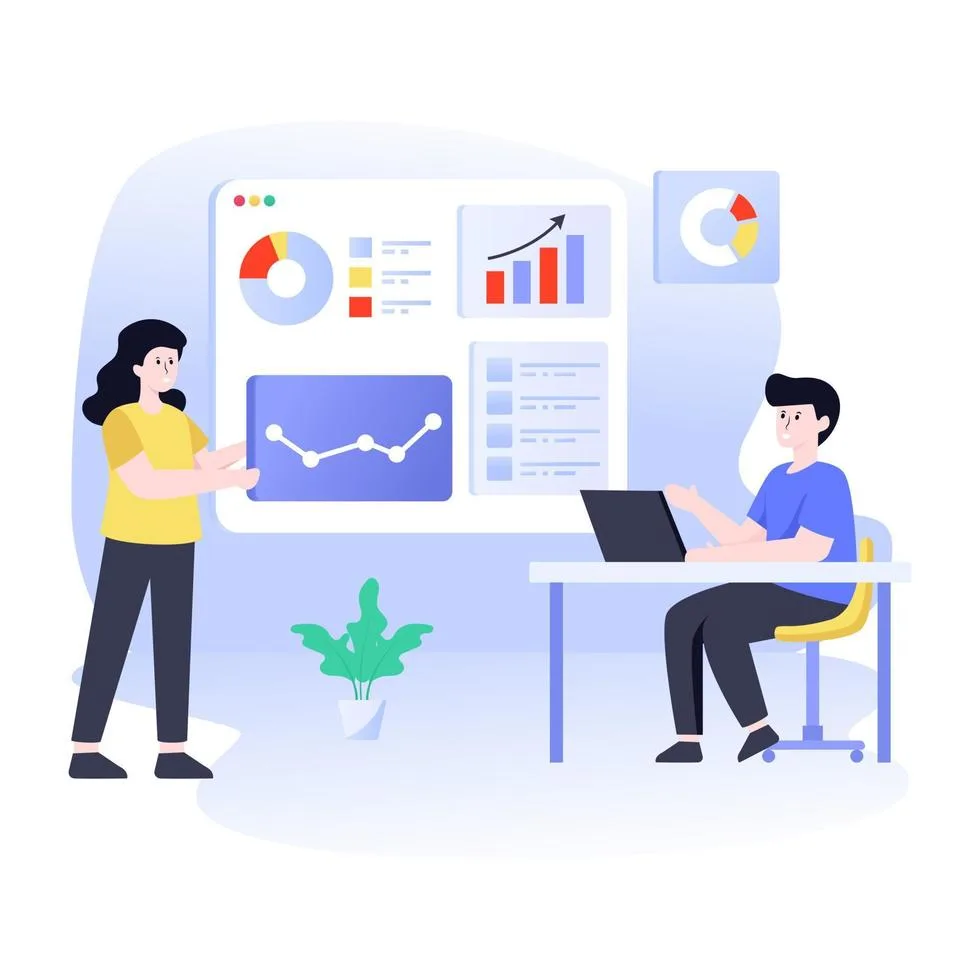
The Benefits of Staff Augmentation of Dedicated GRPC Developers
Staff augmentation with dedicated GRPC developers offers numerous advantages over freelancers, gig workers, or contract developers. First, dedicated developers provide a higher level of commitment and consistency, ensuring that your project receives focused attention. Unlike freelancers, who may juggle multiple projects, dedicated developers are solely committed to your team’s goals.
Furthermore, staff augmentation allows for better integration with your existing team, fostering seamless collaboration and communication. Dedicated developers can participate in regular meetings, contribute to long-term planning, and provide ongoing support, which is often not feasible with gig workers or short-term contractors.
Another significant benefit is the access to a pool of specialized talent. Companies like Kaynes offer pre-vetted, highly skilled GRPC developers who have the expertise to tackle complex development challenges. This ensures that you have access to top-tier talent without the lengthy hiring process.
Lastly, staff augmentation provides greater flexibility in scaling your team up or down based on project demands. Whether you need additional resources for a critical phase or need to reduce the team size post-launch, dedicated staff augmentation allows for adaptable, efficient resource management.
Project-Specific vs. Long-Term GRPC Development Requirements
Companies looking for project-specific GRPC developers typically have short-term needs for specialized skills to meet immediate project goals. These developers are brought on board to tackle specific tasks and are often released once the project is completed.
In contrast, long-term GRPC development requirements involve ongoing projects or continuous development needs. Companies requiring long-term developers seek stability, consistent support, and deeper integration with their team. These developers contribute to the long-term vision, enhancing and maintaining the system over time. The primary difference lies in the duration and depth of involvement, with project-specific needs being short-term and task-oriented, while long-term needs focus on sustained development and integration.
Our Process
The Strategic Process to GRPC Developer Staff Augmentation with Kaynes
With Kaynes, the process of augmenting your team with GRPC developers is easy, smooth, and reliable. We provide expert developers meticulously vetted for their skills and work ethic, ensuring seamless integration into your projects.
Our 4 Step Process
Our Hiring Process in 4 Easy Steps
Defining Your Project Requirements
The first step in our GRPC Developer Staff Augmentation process is defining your project requirements. We work closely with you to understand the specific needs of your project, including technical skills, experience levels, and any particular qualifications or expertise your ideal developer should possess. This tailored approach ensures that we match you with developers who align perfectly with your project goals and organizational culture.
We Provide Top GRPC Developers Vetted and Tested for You to Consider
At Kaynes, we take pride in providing top-tier GRPC developers who have been rigorously vetted and tested. Our recruitment process includes comprehensive skill assessments and behavioral interviews to ensure that each developer possesses the technical prowess and reliable work ethic you need. By the time you consider our candidates, you can be confident in their ability to deliver exceptional results and solve complex problems effectively.
Developer Interview: Screening for the Best Fit for Your Team
Once we present you with a shortlist of qualified GRPC developers, you have the opportunity to interview them directly. This step allows you to assess their technical skills, communication abilities, and cultural fit with your team. By conducting these interviews, you can ensure that the selected developer not only meets the technical requirements but also aligns well with your team's dynamics and work environment.
Onboarding: We Are Here to Support You
Kaynes is committed to making the onboarding process as seamless as possible. We provide comprehensive support to help integrate your new GRPC developer into your team. This includes setting up necessary tools and systems, providing project-specific training, and facilitating initial meetings to ensure smooth communication. Our goal is to get your new developer up to speed quickly so they can start contributing to your project effectively.
Interview Questions
Interview Questions to Hire GRPC Developers
Basics and Advanced GRPC Concepts
When interviewing GRPC developers, it’s essential to gauge their understanding of both basic and advanced GRPC concepts. Start with questions about Protocol Buffers, the data serialization format used by GRPC, and how it enhances communication between microservices. Ask them to explain the differences between unary, server-streaming, client-streaming, and bidirectional-streaming RPCs. Delve into their familiarity with GRPC’s load-balancing and authentication mechanisms. Understanding their approach to handling errors, implementing retries, and optimizing performance is crucial. These questions will help you assess their comprehensive knowledge and readiness to tackle real-world GRPC challenges.
Data Structure, Algorithms, and Problem-Solving
Proficiency in data structures, algorithms, and problem-solving is essential for any GRPC developer. During the interview, present them with real-world scenarios to evaluate their ability to design efficient data structures and algorithms. Ask them to demonstrate their problem-solving skills by tackling questions related to optimizing data serialization, managing concurrency, or ensuring low-latency communication. Scenario-based questions can reveal their approach to debugging, their understanding of algorithmic complexity, and their ability to write clean, maintainable code. These insights will help you determine whether they possess the critical thinking and technical skills necessary for your project.


Performance
Monitoring and Performance
At Kaynes, we are committed to ensuring that you receive reliable results and excellent productivity from your new GRPC developer. To achieve this, we implement robust monitoring and performance management practices. Utilizing advanced monitoring software, we take periodic screenshots and track time to ensure accountability and transparency. This system guarantees that you only pay for the hours your developers are actively working, enhancing overall productivity.
Our monitoring tools also provide insights into work patterns, helping to identify any potential issues early. If there are any concerns regarding performance or integration, our team is ready to step in and assist. We offer support to resolve any challenges and manage the developers effectively, ensuring that your project remains on track. By maintaining high standards of performance monitoring and offering prompt support, Kaynes ensures that you achieve the best possible results from our GRPC Developer Staff Augmentation services.
Why GRPC
What can you do with a GRPC Developer?
GRPC developers are essential for building high-performance, scalable, and efficient communication systems in modern software architectures. Companies leverage GRPC developers to create robust APIs that facilitate smooth and fast communication between microservices. This is particularly important in distributed systems where different services need to interact seamlessly. GRPC’s low-latency, high-throughput capabilities make it ideal for real-time applications, complex data exchanges, and ensuring reliability across systems.
Organizations also use GRPC developers to implement efficient data serialization and deserialization using Protocol Buffers, which is crucial for reducing bandwidth and improving the speed of data transmission. GRPC developers are skilled in both server-side and client-side implementations, allowing them to create comprehensive, end-to-end solutions. They are also adept at integrating GRPC services with existing systems and various backend frameworks, ensuring compatibility and optimal performance.

- Microservices Communication
- Real-time Data Streaming
- API Development and Management
- Service Load Balancing
- Secure and Encrypted Communication
- Efficient Data Serialization
- IoT Device Communication
- Performance Optimization and Monitoring
Considerations
When Doing GRPC Developer Staff Augmentation
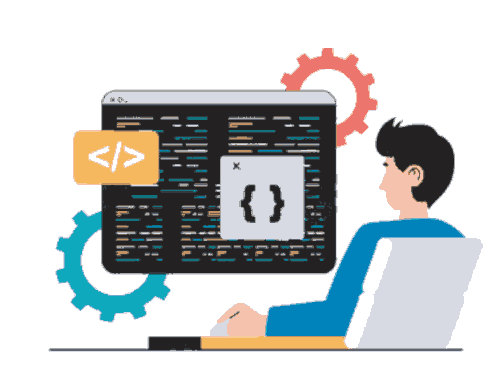
Defining your project requirements is a crucial first step in GRPC developer staff augmentation. It’s essential to identify the technical skills and experience levels needed to meet your project’s goals. Consider the specific frameworks and technologies your project utilizes and ensure the developers you hire are proficient in these areas. For instance, if your project relies heavily on microservices, you will need developers experienced in building and optimizing these services using GRPC.
Another important consideration is the alignment of soft skills. Technical expertise alone is not enough; the developers must also fit well with your team’s culture. Look for qualities such as effective communication, problem-solving abilities, and teamwork. These soft skills are vital for seamless collaboration and ensuring that the developer can integrate smoothly into your existing team.
Additionally, consider the duration and scope of your project. Whether you need a developer for a short-term project or a long-term engagement will influence your hiring criteria. Define clear milestones and deliverables to ensure that both parties have a shared understanding of the project’s goals. By thoroughly defining your project requirements, you can find the perfect GRPC developer who not only meets the technical criteria but also aligns well with your team’s dynamics.
Perfect Match to Your Requirements
How Kaynes Helps You Find the Perfect Developer

At Kaynes, we take pride in our ability to match you with the perfect GRPC developer. Our approach combines advanced AI matching algorithms with the expertise of experienced human recruiters. This dual approach ensures that you get a developer who not only has the right technical skills but also fits well with your team’s culture and project requirements.
Our AI algorithms analyze a variety of factors, including technical skills, experience levels, and project requirements, to generate a shortlist of potential candidates. However, we don’t stop there. Our seasoned recruiters conduct in-depth interviews to assess soft skills, communication abilities, and cultural fit. This ensures that the developers we provide can seamlessly integrate into your team and contribute effectively from day one.
We also conduct rigorous technical testing using the latest tools and methodologies. Our tests are designed to evaluate a candidate’s problem-solving abilities, coding skills, and proficiency in the relevant technologies. These tests are often recorded, allowing you to review the candidate’s performance and make an informed decision.
Moreover, many of our developers have prior experience working on projects with US-based teams and have received excellent feedback on their skills and work ethic. This ensures that you get a developer who is not only technically proficient but also reliable and accustomed to working in a similar business environment. With Kaynes, you can be confident that you are getting the best possible match for your GRPC development needs.
FAQs
Frequently Asked Questions (FAQs)
Kaynes stands out as the premier choice for staff augmentation of GraphQL Developers due to our rigorous vetting process, extensive talent pool, and commitment to client success. Based in South America, we provide highly skilled, English-speaking developers who are experienced in working with companies in the USA, Canada, and UK. Our advanced AI matching algorithm, combined with our expertise in human recruitment, ensures we find developers who not only meet your technical requirements but also fit seamlessly into your team culture. Our developers are tested for their coding skills, problem-solving abilities, and reliability, guaranteeing top-tier talent ready to contribute from day one. With Kaynes, you benefit from competitive pricing, transparent processes, and dedicated support, making us the best choice for your GraphQL development needs.
Hiring GRPC developers can present several challenges, including finding talent with the right technical skills, ensuring cultural fit, and managing remote work dynamics. At Kaynes, we address these challenges through a multifaceted approach. Our AI matching algorithm identifies candidates with the precise technical expertise needed for your project, while our experienced recruiters assess soft skills and cultural fit to ensure seamless integration into your team. We also offer robust onboarding support to help new developers get up to speed quickly, and our monitoring tools ensure transparency and productivity. By combining technology with human insight, we mitigate the common risks and challenges associated with hiring GRPC developers.
Writing an effective job description for a GRPC Developer involves clearly outlining the responsibilities, required skills, and qualifications. Start with a concise job title and a brief overview of your company and the role. List key responsibilities, such as designing and implementing GRPC-based services, maintaining and optimizing existing systems, and collaborating with cross-functional teams. Specify the required technical skills, including proficiency in GRPC, Protocol Buffers, and relevant programming languages like Python, Java, or Go. Highlight any additional skills, such as experience with microservices, real-time data processing, and performance optimization. Finally, include qualifications like a relevant degree or equivalent experience, and emphasize soft skills like communication, problem-solving, and teamwork.
At Kaynes, we offer a diverse range of GRPC developers to meet your specific needs. Our talent pool includes junior developers who are eager to grow and bring fresh perspectives, intermediate developers with solid experience and a track record of successful projects, and senior developers who offer extensive expertise and leadership capabilities. We also provide full-stack developers proficient in both frontend and backend technologies, as well as specialists in areas such as microservices architecture, real-time data processing, and performance optimization. All our developers are rigorously vetted, ensuring they possess not only the technical skills but also the soft skills necessary for effective collaboration and communication.
At Kaynes, we understand that business needs can change rapidly. If you need to suddenly cut development costs after hiring GRPC developers, we offer flexible solutions to accommodate your situation. Our contracts are designed to be adaptable, allowing for scaling down the team or adjusting the level of engagement based on your current requirements. We also offer part-time and project-based options, enabling you to retain critical talent while managing costs effectively. Additionally, our support team is available to help you strategize and implement cost-saving measures, ensuring that you can continue to meet your goals without compromising on quality or productivity.

